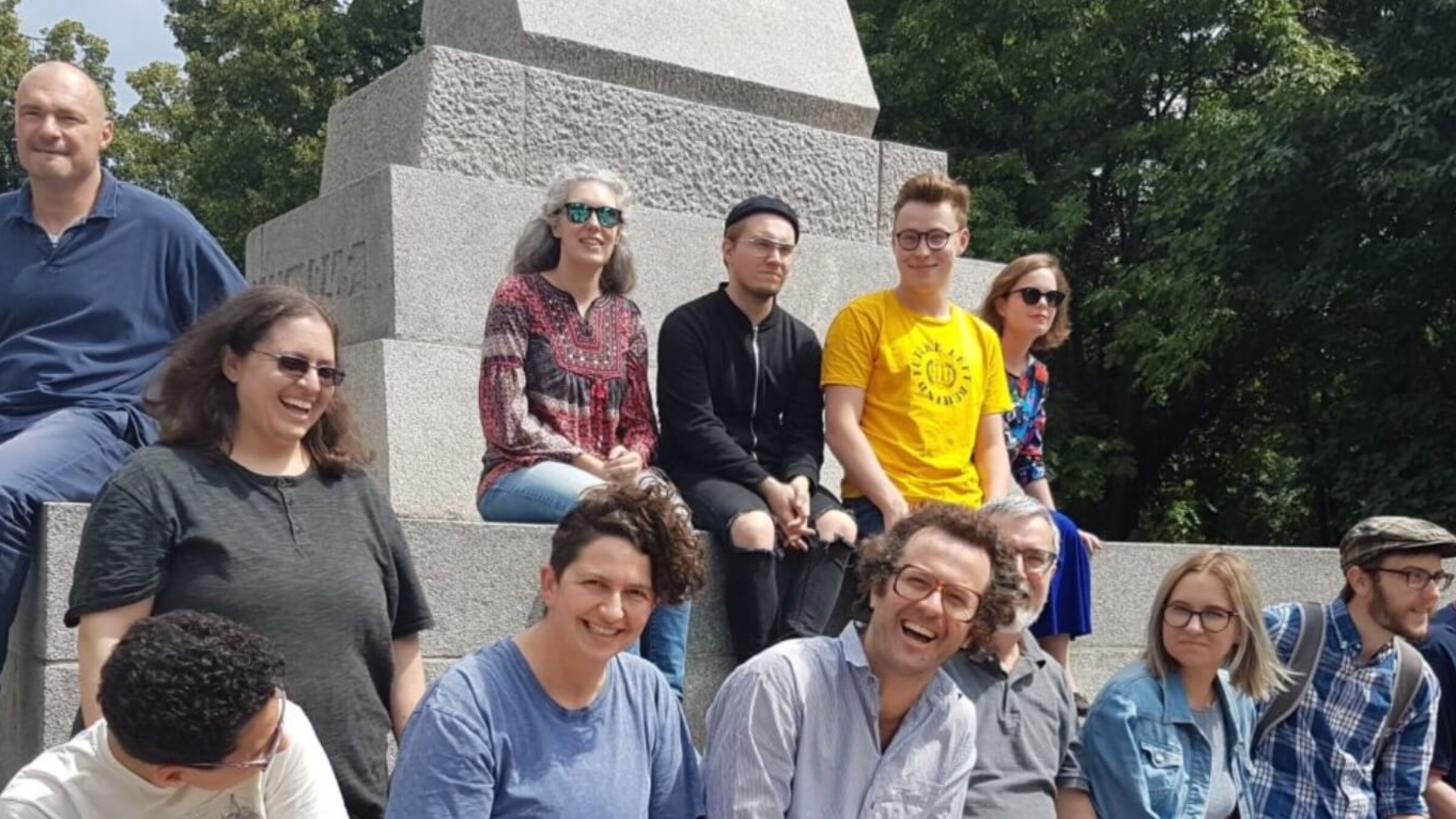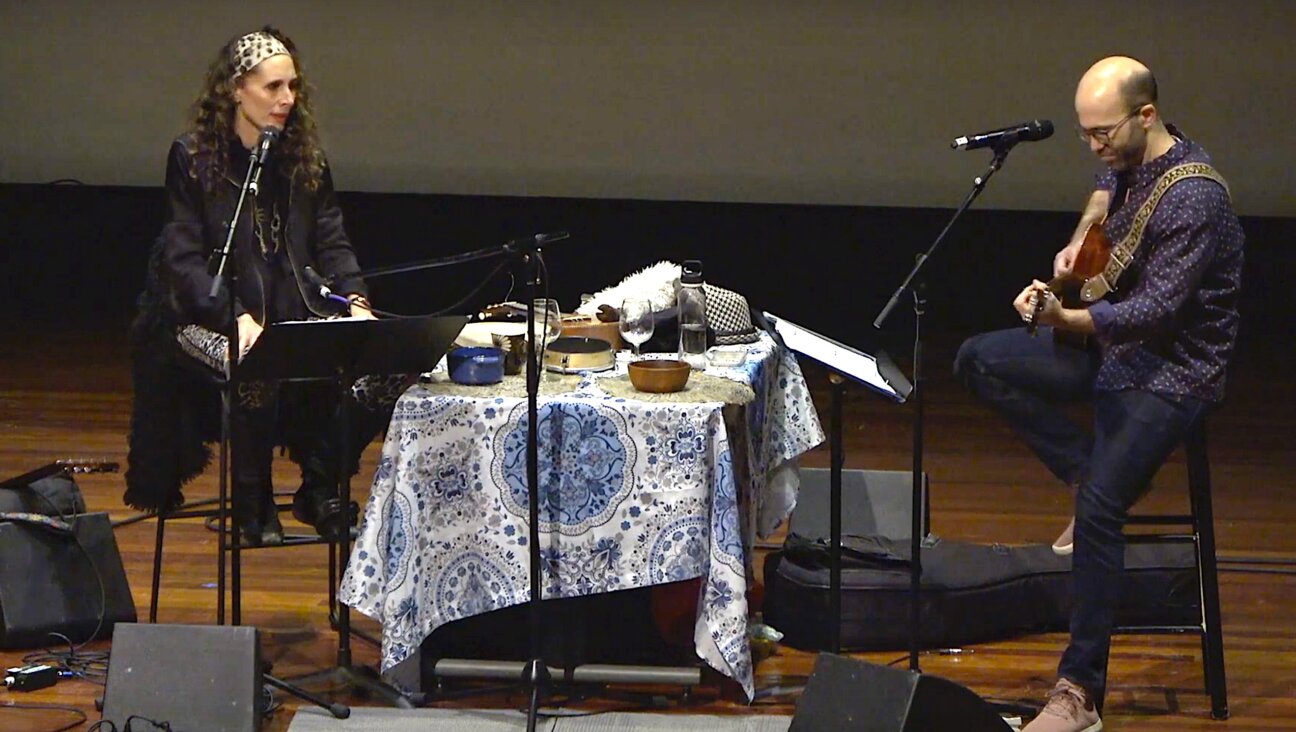Themes of Warsaw’s Yiddish summer program are health and sports in Jewish history
The three-week program will feature Yiddish on all levels, both in person and online, and several lectures in English

Several students and teachers of last year’s Warsaw Yiddish summer program Photo by Jidyszland
This summer, the Warsaw-based Shalom Foundation and the Center for Yiddish Culture is hosting its 21st International Summer Seminar in Yiddish Language and Culture, to take place both in Warsaw and online.
The seminar includes two-week and three-week programs of language study, from beginners to advanced. The classes run 3 1/2 or 4 hours a day.
The deadline to apply for scholarships for the program is May 30.
Each of the advanced courses, to be taught in Yiddish, will have a specific theme. The Yiddish researcher and translator Natalia Krynicka will share Yiddish memoirs, poetry, short stories and proverbs that relate to physical and mental health.
Krynicka will also teach a course about the image and stereotypes of Jewish and non-Jewish women in Yiddish literature.
Yiddish scholar and Forverts writer Philip Schwartz will share memoirs, articles from the prewar Yiddish press and fiction that relate to Jewish children’s games, chess and sports. Among the readings: a piece about Jewish girls playing basketball in Vitebsk in the 1920s and another one about the renowned strongman Zishe Breitbart.
The seminar will also include two talks in English related to sports and masculinity among the Jews of prewar Poland. Piotr Nazaruk, the curator at Poland’s Grodzka Gate-NN Theatre, will give a lecture titled Goal of Goals: The History and Politics Behind Jewish Sports in Pre-War Lublin.
The other talk, presented by Mariusz Kałczewiak, a social and cultural historian of modern Eastern Europe and Latin America, will be Boys Showing Off: Polish-Jewish Strongmen and Boxers and the Changing Notions of Masculinity.
To register for Warsaw’s Yiddish summer program or apply for a scholarship, click here.
























